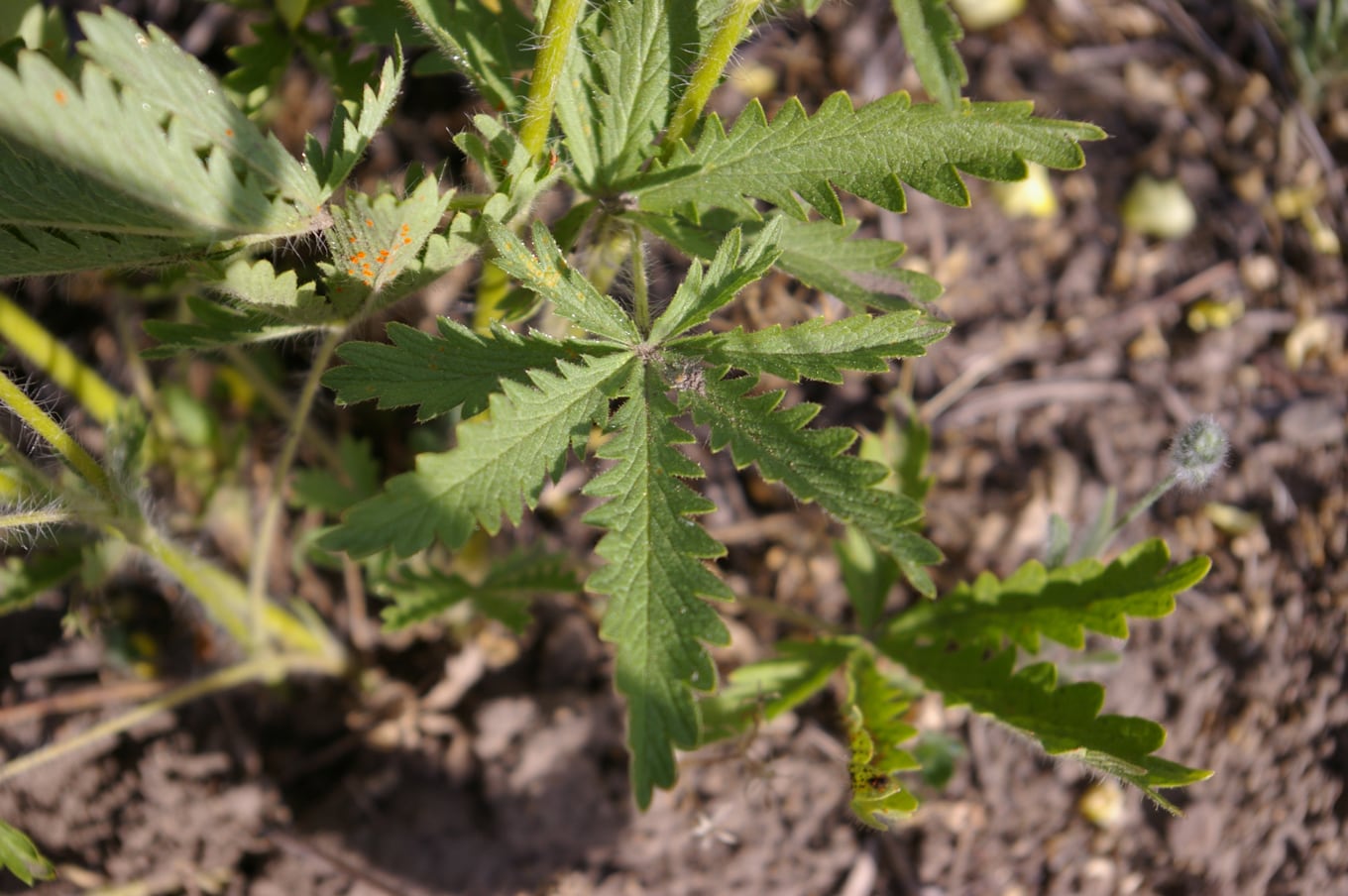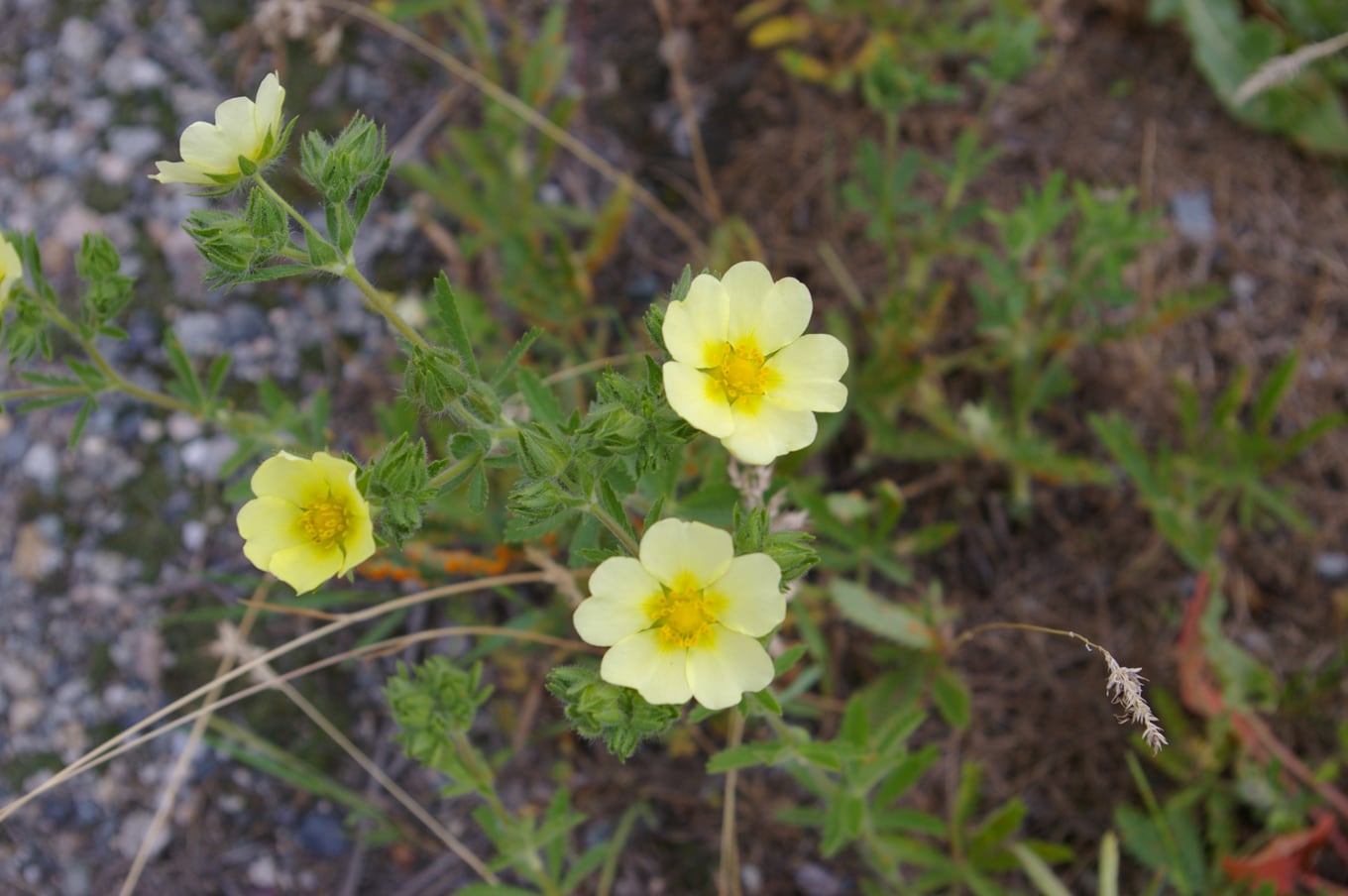Invasive plant Sulphur Cinquefoil spreads through seed, vegetatively from roots
There are over 20 different species of Cinquefoils (potentilla's) found in B.C. three of which are invasive.
Today the focus is on the invasive plant sulphur cinquefoil (Potentilla recta).
Sulphur cinquefoil is a native of Europe, Asia, and north Africa. It has been in North America since before 1900. Sulphur cinquefoil is a perennial which can live up to 20 years. It spreads by seed and also vegetatively from the roots.
One plant can produce around 1,600 seeds per year. The good news is that the seed survival is short lived so it is not banked for more than a few years in the soil. It has light sulphur yellow flowers with 5 petals and the flowers form a flat top.
The leaves are palmate with five to seven leaflets on each leaf. If you look on the underside of the leaf and see an orange rust you know for sure that you are looking at sulphur cinquefoil. Sulphur cinquefoil is generally avoided by grazing animals as it contains a high tannin content. It does very well in pastures making control of this plant very important.
Good management practices in pastures such as avoiding over grazing, irrigating, seeding disturbed areas and maintaining vigorous perennial plant communities are key to preventing this plant from turning your pasture into a sea of yellow.
Sulphur cinquefoil does not survive cultivation very well. Digging small patches can be effective but because it spreads by root buds it is important to monitor where you pulled to make sure you got all of it. There are several herbicides that are very effective in treating sulphur cinquefoil.
There are no biological controls for sulphur cinquefoil.
After years of research the project has been shelved. Nothing could be found that was specific enough so it was decided that funding should go to other more promising projects.
For more information on invasive plant management you can contact the Boundary Invasive Species Society at info@boundaryinvasives.com, 250-446-2232, www.boundaryinvasives.com and on Facebook.
Jen Haynes is the Education Coordinator for the Boundary Invasive Species Society and can be reached at www.boundaryinvasives.com or 250-446-2232























